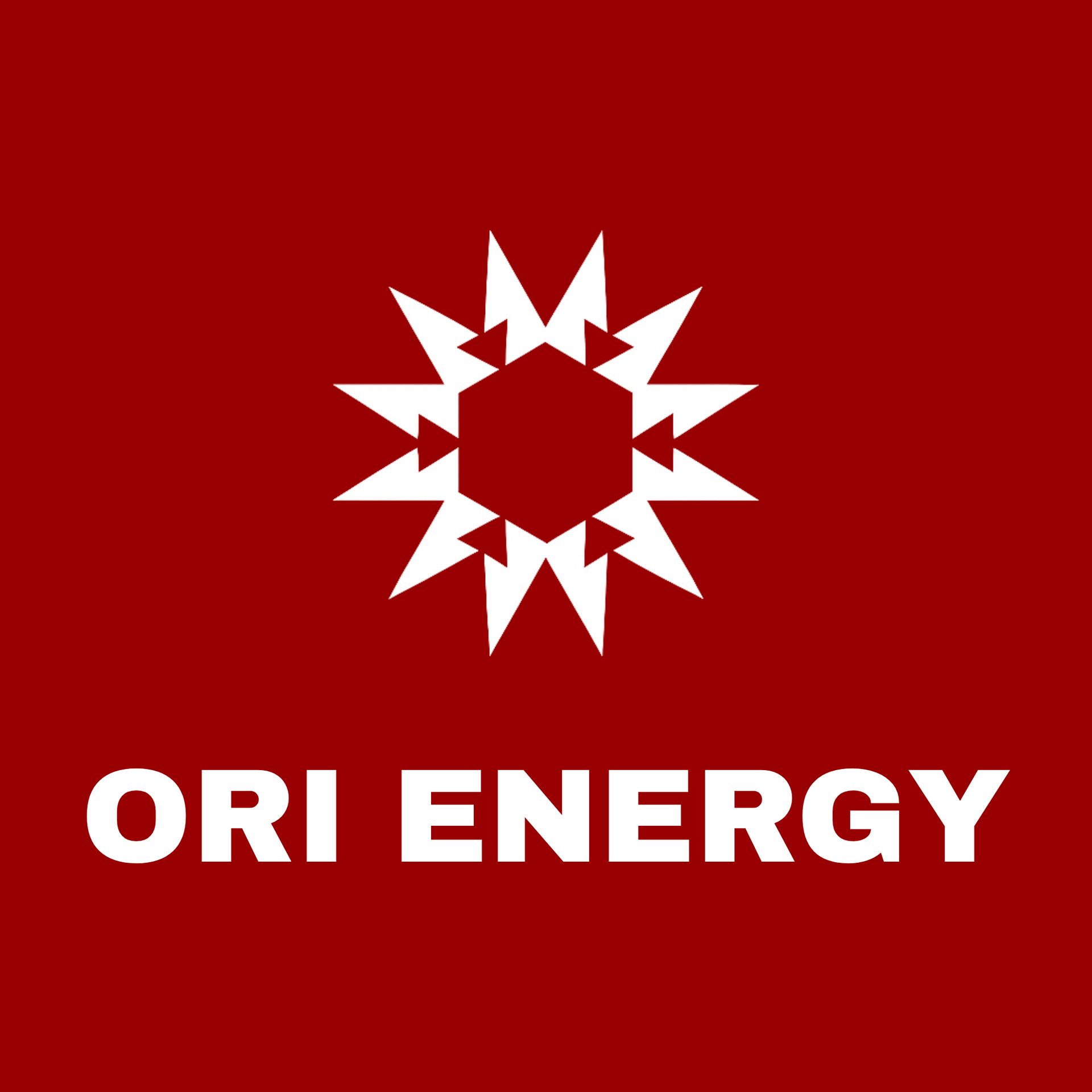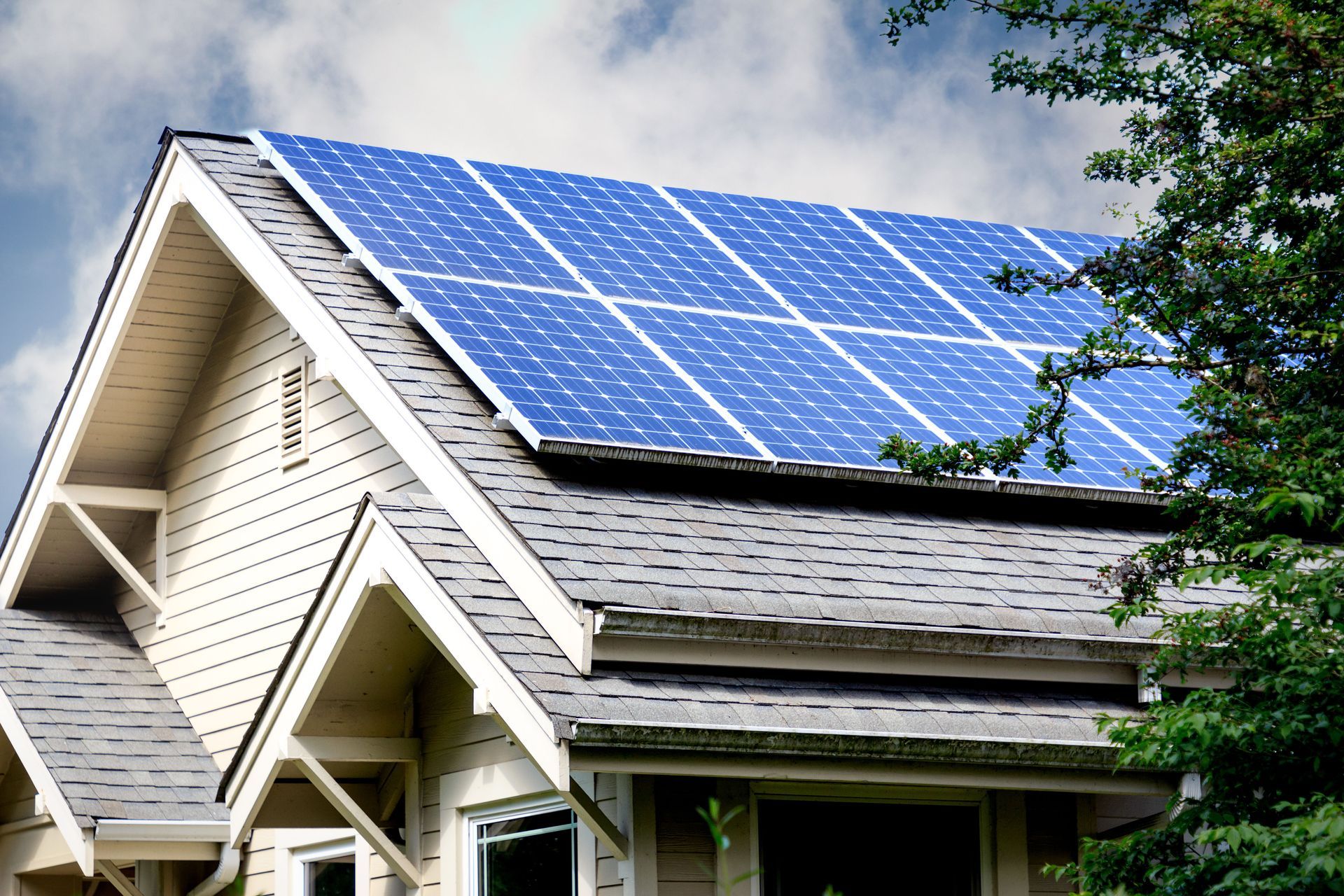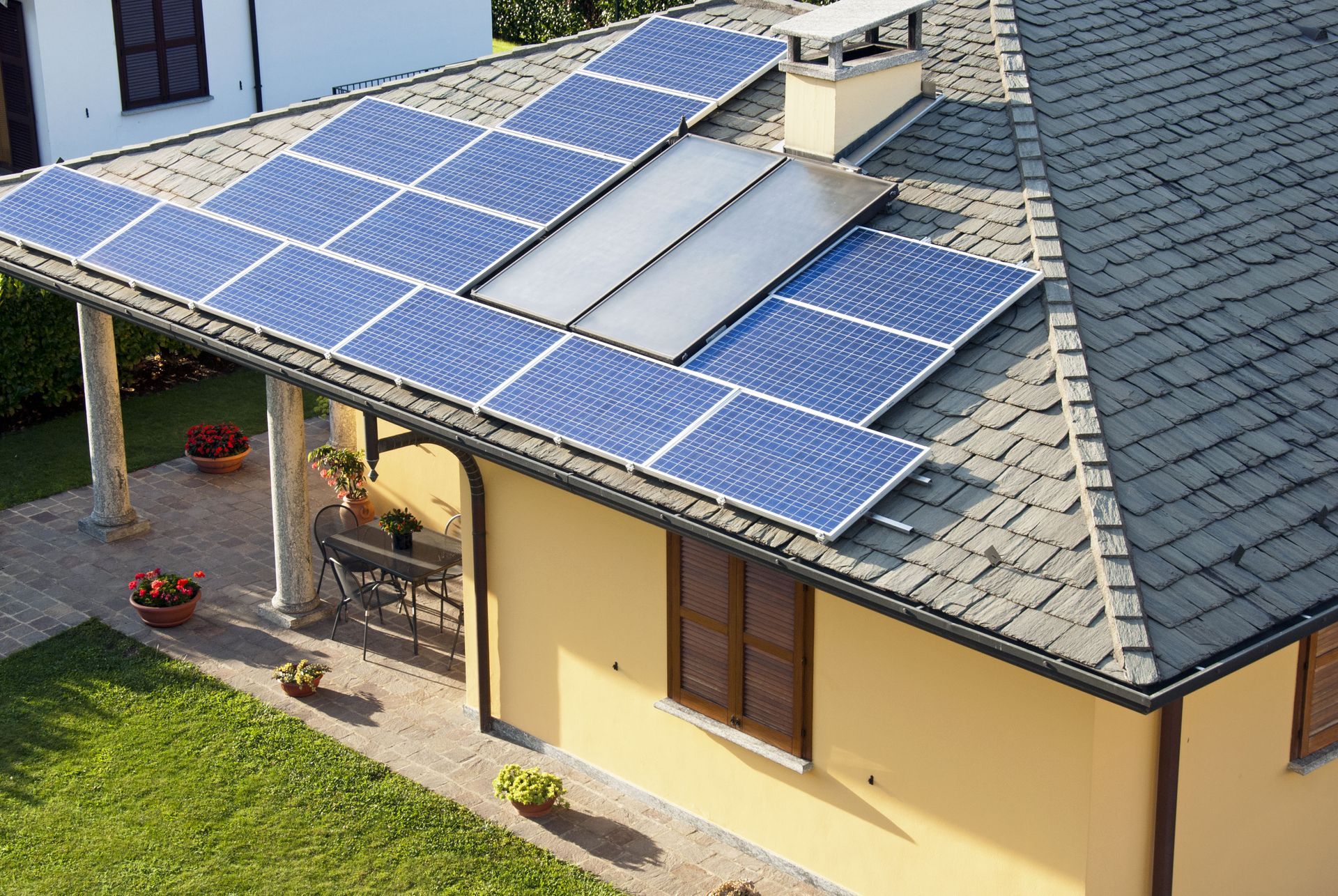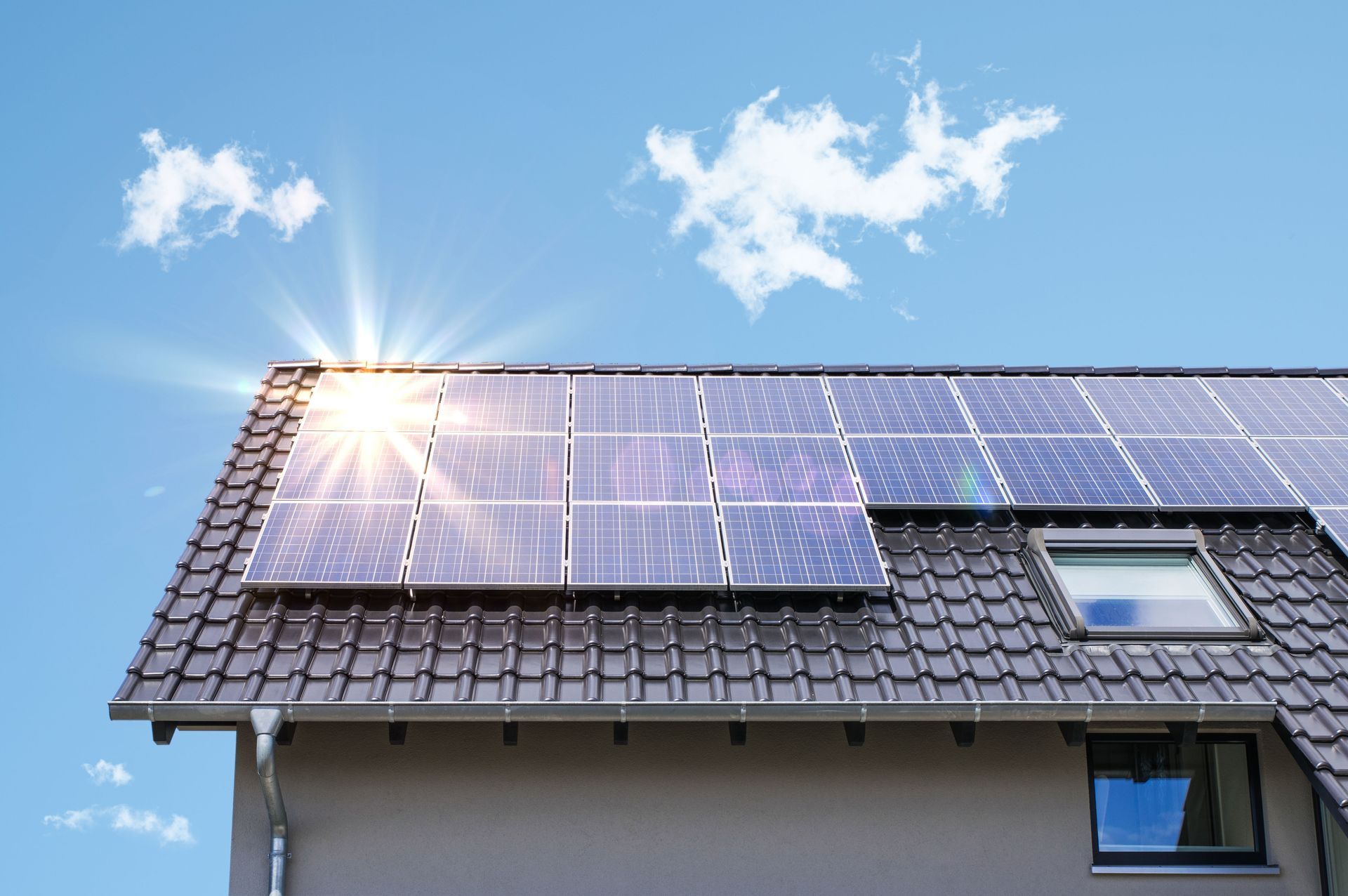How Solar Panels Can Affect Your Home’s Resale Value
In this article, we explore the various ways through which solar panels can impact the resale value of your home. As the popularity of sustainable energy solutions grows, understanding the financial implications of home solar panels is crucial for homeowners aiming to make informed decisions. With energy costs on the rise and environmental consciousness at the forefront, solar panels aren't merely an eco-friendly choice but also a financially strategic investment. This article delves into these dynamics, offering a comprehensive analysis of how solar panels can enhance your property's resale value.
Evaluate the General Impact on Property Value
The installation of solar panels is widely recognized as a value-adding improvement to homes. By reducing or even eliminating energy bills, they create significant savings that can attract potential buyers. Furthermore, solar panels confer energy independence, reducing homeowners' reliance on fluctuating energy prices. This stability is appealing to buyers, often resulting in higher bids and faster sales.
Homeowners who invest in home solar panels might see an increase in property value that reflects these savings. In many cases, the immediate and long-term financial benefits associated with solar energy are immediately evident to prospective buyers, enhancing a property's market appeal. Additionally, as utility rates vary by region, home solar panels in areas with higher electricity costs can see even more dramatic value increases. Clearly, solar panels aren't only a marker of sustainable living but also an indicator of economic foresight.
Compare Homes With and Without Solar Panels
Homes equipped with solar panels often exhibit a competitive edge in the housing market. The primary differentiator is the notable decrease in energy expenses, providing an attractive proposition for buyers wary of rising energy costs. Furthermore, the consistent push towards green living practices amplifies this advantageous position. In contrast, homes without these installations may find themselves at a disadvantage, particularly in markets where sustainability is highly valued.
Solar-powered homes are increasingly becoming the norm rather than the exception, which sets a new standard in real estate markets. When comparing similar properties, those with home solar panels often sell quicker and at higher prices than those without. The key lies in the long-term savings and environmental benefits that solar panels promise. This trend suggests that buyers are weighing these future-oriented investments more heavily in their purchasing decisions.
Identify Factors That Influence Value Increase
Several factors contribute to the increase in property value associated with solar panels. One of the most influential aspects is the reduction in ongoing energy expenses, which is directly attributable to solar power generation. According to HomeAdvisor, the average home in the U.S. requires between 15 and 30 solar panels, based on 400-watt panels, which helps homeowners estimate both installation scale and potential energy savings. Additionally, the growing societal awareness and preference for sustainable living bolster demand for solar-equipped homes. The tangible benefits of solar panels, such as energy independence and efficiency, further influence this upward valuation trend.
Location-specific factors also influence the degree of value increase. Regions with higher electricity costs see more pronounced benefits, as energy savings substantially offset utility expenses. Additionally, mandates or incentives promoting renewable energy adoption help create a conducive environment for increased value appreciation. Thus, the value boost associated with solar panels is multifaceted, combining intrinsic property improvements with external market forces.
Maintain Solar Panels to Protect Value
Proper maintenance is integral to maximizing the long-term value and efficiency of home solar panels. Regular cleaning ensures panels operate at optimal efficiency, free of debris and obstructions. Routine inspections can also detect wear and tear early, providing the opportunity for timely repairs before minor issues escalate. Implementing a consistent maintenance schedule is a straightforward step in safeguarding the investment in solar technology.
Keeping solar installations in peak condition involves monitoring energy output and comparing it against expected performance metrics. Any discrepancies should be promptly highlighted, and potential issues should be addressed, allowing for proactive measures. As technological innovations continue to advance, monitoring tools and apps enhance the ability to oversee panel functionality remotely. Such vigilance ensures panels deliver maximum energy generation, thereby protecting the resale value.
Professional maintenance services can provide additional assurance of system longevity and efficiency. These experts can conduct comprehensive evaluations and maintenance, tending to areas beyond the reach of standard upkeep. By prioritizing maintenance, homeowners not only protect their initial investment but also maximize the financial benefits when ultimately reselling their properties. This emphasis on care cements solar panels as an enduring asset within residential real estate.
Analyze the Return on Investment
The decision to install solar panels is often centered around the potential return on investment (ROI). ROI calculations for home solar panels involve weighing the initial installation costs against long-term energy savings and increased home value. On average, many homeowners experience payback thanks to accumulated savings on electricity bills. This recovery period highlights solar panels as a lucrative financial venture.
In addition to direct savings, tax incentives further enhance the ROI of solar installations. Various federal, state, and local programs provide tax credits and rebates to offset capital expenditures, making solar projects more financially viable. These incentives can reduce upfront costs, yielding a quicker return and magnifying financial benefits over time. As such, solar panels represent not only a sustainable choice but also a strategic investment.
The interplay of reduced energy costs, heightened property value, and external incentives creates a compelling scenario for prospective solar adopters. Homeowners can effectively calculate ROI by factoring in these multidimensional benefits, aligning fiscal expectations with broader sustainability goals. Thoroughly understanding the ROI potential empowers buyers and sellers alike to engage in informed discussions and decisions regarding solar investments.
Understand Buyer Perceptions and Market Trends
Buyer perceptions play a pivotal role in shaping the market trends surrounding solar-equipped homes. Increasingly, buyers recognize the value of energy-efficient features, aligning their preferences with sustainable living. The desire for reduced energy costs and carbon footprints positions solar panels as a desirable asset in the real estate market. Consequently, homes with solar features often become prominent targets for environmentally-conscious buyers.
Sustainable living has evolved from a niche to a mainstream priority, embedded in broader market trends. Media coverage and educational campaigns have elevated awareness, making consumers more informed about the benefits of renewable energy. This heightened awareness translates into an elevated demand for solar installations, catapulting these homes to the forefront of desirable real estate options. Thus, solar panels not only meet energy needs but resonate with emerging cultural priorities as well.
Ongoing innovations and policy developments continue to fuel these trends, underscoring the increasing viability and appeal of solar technology in residential markets. Buyers' preferences are continuously shaped by legislative shifts and industry advancements, solidifying solar panels' role as a pivotal factor in home purchasing decisions. These evolving perceptions and trends underscore the broader cultural shift towards sustainable living, ensuring the relevance and desirability of solar-equipped homes.
As energy costs rise and the demand for sustainable living increases, solar panels are becoming an attractive feature for homebuyers. However, understanding the specifics of how they affect resale value is key to making profitable and well-informed real estate decisions. Home solar panels not only provide ongoing energy savings but also significantly enhance home value through reduced energy dependence and increased sustainability appeal. This guide provides a comprehensive overview, empowering potential sellers and buyers with vital insights into the residential solar market. Reach out to Ori Energy to learn more about our services today!




Share On: